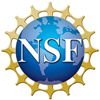Tech Intrapreneurship Program (TIP)
Scholarships in STEM (S-STEM)
Sponsored by: National Science Foundation and Texas Instruments
Overview
The Tech Intrapreneurs Program (TIP) is a NSF Scholarships in Science, Technology, Engineering, and Mathematics (S-STEM) project to support the retention and graduation of high-achieving, low-income students with demonstrated financial need at Texas Tech University. Students pursuing bachelor's degrees in electrical and computer engineering are eligible to apply. TIP will combine faculty and industry mentorship, workforce development seminars, an international experience, an industrial internship, entrepreneurship programs, and scholarships to produce graduates with intrapreneurship competencies, i.e. the capability to develop a new venture, product, or service within an existing organization. Intrapreneurial skills facilitate career progression and have been shown to improve managerial skills and opportunities.
Engineering focused companies are requesting a diverse workforce that is capable of innovation. Industry partners will provide additional scholarship support, mentorship, and internship opportunities. The project will leverage NSF investment in TTU's I-Corps Site and Node programs that provide innovators and entrepreneurs the training and resources needed for commercializing ideas. The knowledge generated through this research will add to the knowledge of the field on whether or not an intrapreneurial focus will increase engineering student learning outcomes. Scholars educated through this program will benefit society through strong job skills and the knowledge to start their own company. Deep and lasting interactions with industry and faculty mentors will improve student retention and lead to internship and full-time employment opportunities.
Details
- Funding sources: National Science Foundation and Texas Instruments
- Scholarship Amounts: $2,000 - $10,000 per year per student
- Scholarships to be awarded: · 10 – 12 per year
- Director: Dr. Tim Dallas (ECE)
- Co-Directors: Dr. Kelli Frias (Marketing-American University), Dr. Tanja Karp (ECE), and Dr. Annette Hernandez (WCOE)
- Evaluators: Dr. Heather Greenhalgh-Spencer and Mr. Archie Pitsilides
- Faculty Mentors: Dr. Stephen Bayne, Dr. Ayrton Bernussi, Dr. Changzhi Li, Dr. Brian Nutter, Dr. Richard Gale

Eligibility
- Is a citizen of the United States, national of the United States (as defined in section 101(a) of the Immigration and Nationality Act), alien admitted as a refugee under section 207 of the Immigration and Nationality Act, or alien lawfully admitted to the United States for permanent residence
- Is enrolled full time in an electrical and computer engineering baccalaureate program at Texas Tech University
- Will be enrolled full-time for each semester receiving a scholarship.
- Demonstrates financial need, defined for undergraduate students by the U.S. Department of Education rules for need-based Federal financial aid. (submitted FASFA).
- Is entering second or third academic year.
Application Process
- Student submits application by May 1, 2022.
- Application requires (check application for format details):
- Applicant information
- A personal statement
- Decisions will be announced in July, 2022.
- Program and scholarships begin in the Fall 2022 semester.
Awardees
The scholarships will be highly competitive and provide generous support. Therefore, the performance of the awardees is expected to be commensurate. Recipients of the scholarships will be required to make good progress through their academic program. Although a scholarship is awarded for 2 semesters, the recipient will be evaluated after the first semester. Poor performance or leaving the electrical engineering or computer engineering major will result in the second semester award being rescinded. Awardees will take a 1-hour seminar class that will provide structure for mentorship and additional training. Faculty and industry mentors will help awardees select appropriate coursework (ECE and other electives), projects, international experiences, and internships.
Electrical & Computer Engineering
-
Address
Texas Tech University, Box 43102, 2500 Broadway, Lubbock, TX 79409 -
Phone
806.742.3533 -
Email
webmaster.coe@ttu.edu
